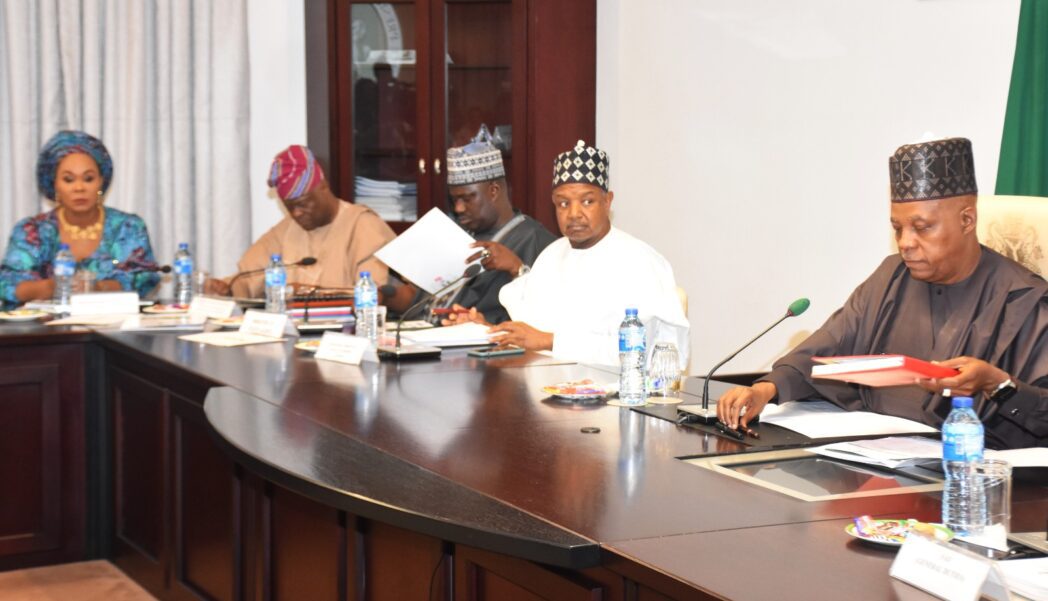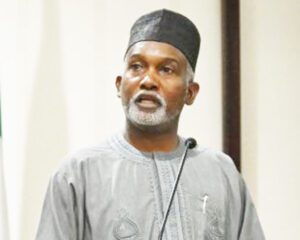


National Council on Nutrition approves new measures to address food, health concerns
The National Council on Nutrition has approved new measures to combat malnutrition and food insecurity in Nigeria.
This is in line with the President Bola Ahmed Tinubu administration’s efforts to improve the nutritional status of all Nigerians.
Speaking on Tuesday during a meeting of the NCN held at the Presidential Villa, Abuja, the Chairman of NCN, Vice President Kashim Shettima called for active and proactive participation from all involved, including ministries, departments, agencies, development partners, and other stakeholders.
“Our dedication to this Council reflects President Bola Ahmed Tinubu’s unwavering commitment to improving the nutritional status of every Nigerian,” VP Shettima declared.
Among the approved measures is the establishment of a national nutrition dashboard to be hosted by the Federal Ministry of Budget and Economic Planning and which will also be uploaded on the website of the NCN. This tool aims to provide better oversight and coordination of nutrition-related initiatives across the country.
Referencing the recently created Presidential Food Systems Coordinating Unit which operates within the framework of the Presidential Economic Coordination Committee, VP Shettima said the Tinubu administration recognizes the urgency of the food crises and is addressing its underlying causes with a view to developing more resilient and sustainable food systems in Nigeria.
Addressing participants at the meeting, the Vice President who commended the efforts of all stakeholders in the nutrition space, assured development partners and other actors of the federal government’s readiness to work with them.
He said, “We are willing and ready to work with you for the good of the Nigerian nation. Let us forge ahead with optimism and resolve, knowing that together we are making substantial changes in the lives of our people. I extend my gratitude for your steadfast support and diligent efforts.
“Collaboration is paramount to our continued success in addressing national nutrition challenges, and I encourage active and proactive participation from all involved ministries and partners, as your contributions are essential to our progress.
“Together, through robust and dynamic collaboration, we can achieve significant advancements in our mission to improve nutritional outcomes for all citizens. All the ministers are willing to collaborate with each other, anchored on maturity, mutual trust and confidence.”
Senator Shettima commended the efforts of some frontline ministries in combating malnutrition and hunger in the country, describing their actions as worthy of emulation.
His words: “I must commend the actions of the Ministry of Health and Social Welfare in convening a task force to address the acute malnutrition crisis in the country. The efforts have manifested in the acquisition of millions of packs of commodities.
“The joint efforts of the Minister of Health and the Coordinating Minister of the Economy to restructure the World Bank project resources securing about 30 million dollars for commodities is also highly commendable and deeply appreciated.
“The Ministry of Finance’s task force to accelerate cash transfer and the Ministry of Agriculture’s initiative to increase food availability and affordability further demonstrates our collaborative efforts,” he added.
Earlier, Minister of Budget and Economic Planning, Senator Abubakar Atiku Bagudu emphasised the administration’s commitment to prioritising nutrition as a crucial component of national development.
“This initiative provides us an opportunity to step up our collective efforts to improve the country’s food and nutrition security,” Bagudu said.
He noted that the meeting which received updates on Nigeria’s current nutritional status focused on proposing actionable recommendations and exploring ways to enhance the implementation of existing nutrition intervention programmes in line with national policy.
Also, Minister of State for Agriculture and Food Security, Senator Aliyu Sabi Abdullahi outlined eight interrelated priority areas designed to address the nation’s nutritional needs, including enhancing value chains for improved nutrition, diversifying household production and consumption with a focus on women, improving access to micronutrient-rich foods, and enhancing food safety along the value chain.
The minister also hinted at plans to build resilience and social protection networks for vulnerable groups, promote nutrition research, and improve the agriculture sector’s capacity to address food security and nutrition problems.
The strategy, according to him, also includes providing nutrition education, social marketing, and advocacy, as well as conducting nutrition surveillance, monitoring and evaluation to ensure the effectiveness of the initiatives.
Also, present at the meeting were the Minister of Finance and Coordinating Minister of the Economy, Mr. Wale Edun; Minister of Women Affairs, Uju Kennedy-Ohanenye; Minister of Youth Development, Dr. Jamila Bio Ibrahim, and Minister of Information & National Orientation, Mohammed Idris.
Others include Minister of State for Health and Social Welfare, Tunji Alausa; Minister of Water Resources and Sanitation, Engr. Prof. Joseph Terlumun Utsev; representatives of development organisations, including the World Bank, USAID, UN Agencies, and the Accelerating Nutrition Results in Nigeria project.



